CITES CoP20
CITES CoP20
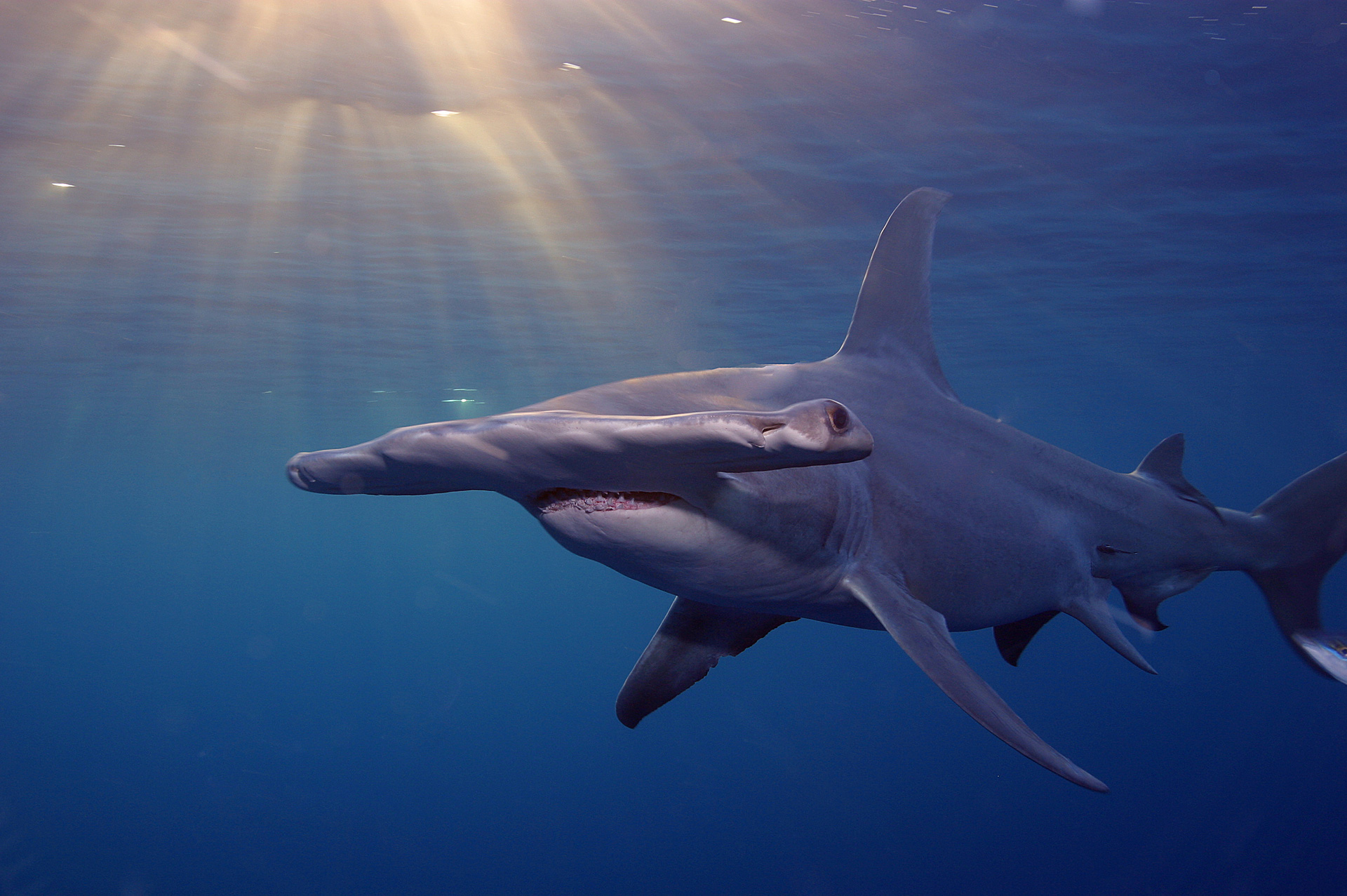
Experts from the International Fund for Animal Welfare (IFAW) will be attending CITES CoP20 in Samarkand, Uzbekistan (24 November-5 December) to advocate for stronger international protections for species threatened by trade. From sharks in our oceans to elephants and rhinos on land, and even lesser-known species like sloths and iguanas, IFAW will be working to ensure these animals receive the safeguards they urgently need to survive and thrive.
IFAW believes the unsustainable trade of wildlife is an issue that needs confronting urgently. Experts will advocate for appropriate international protections to reverse the alarming decline we are seeing in species vital to the health of our planet. This is especially the case for sharks and rays which play an essential role in maintaining the balance of our oceans.
>> Learn more about what is CITES.
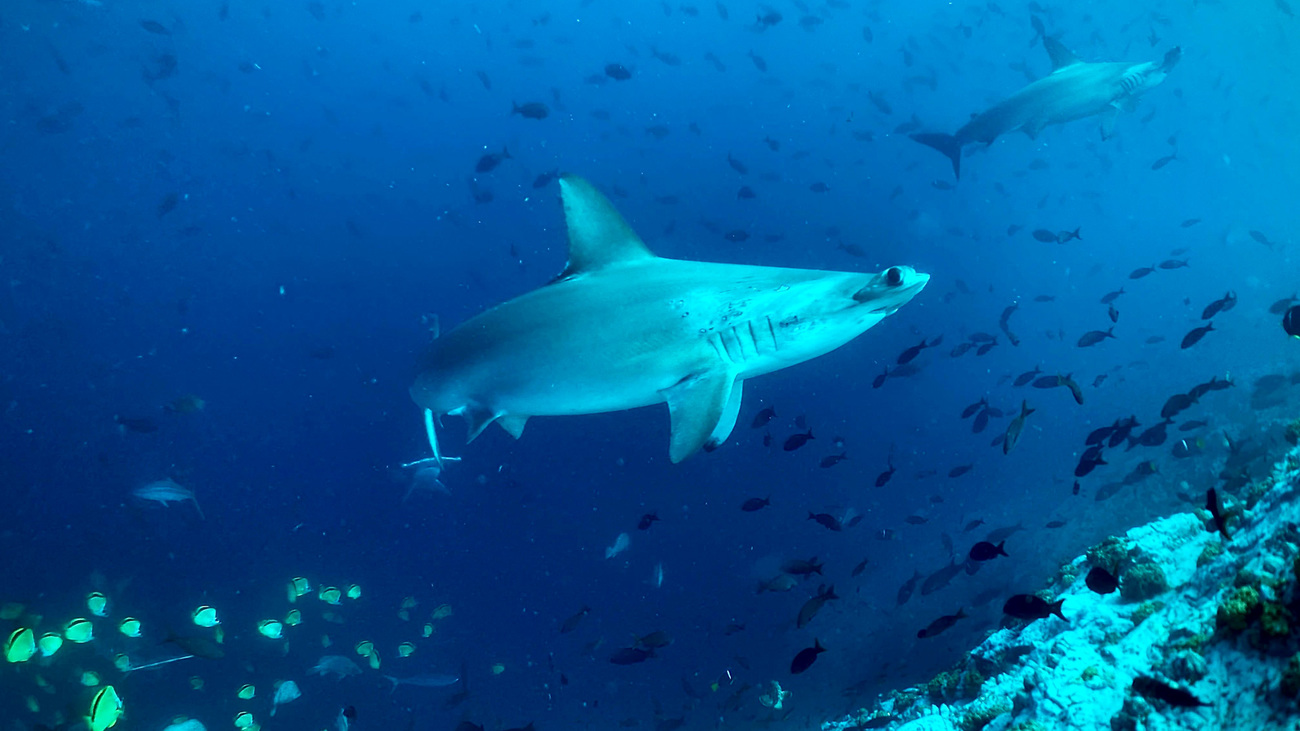
Sharks and rays
IFAW is calling on governments to support seven proposals aimed at banning or regulating the commercial trade of products from several shark and ray species—many of which are listed as either endangered or critically endangered on the IUCN Red List.
- Among these is a proposal to list the oceanic whitetip shark on Appendix I of CITES, the highest level of protection, which would prohibit international commercial trade. Once one of the most widespread sharks in the world, the oceanic whitetip is now critically depleted yet still targeted in international waters. Whale sharks—vital for ocean ecotourism in many countries around the world but threatened by trade in their fins—are also proposed for an Appendix I listing, alongside manta and devil rays, still traded in huge numbers for their gill plates used in traditional medicine.
- All but one of the 18 species of giant guitarfish and wedgefish are now listed as critically endangered, primarily due to intense demand for their exceptionally high-value fins. IFAW supports a zero annual export quota to temporarily halt commercial trade. This would give these species an opportunity to recover to a level where sustainable trade could be possible.
- Smooth-hound and gulper sharks are being proposed for Appendix II listings, which would better regulate trade in these endangered species. Smooth-hound sharks are prevalent in global meat and small fin trades, and the deep-sea gulper sharks are targeted for their liver oil, valued in cosmetics and pharmaceuticals.
Decades of unsustainable trade have pushed these species to the brink.
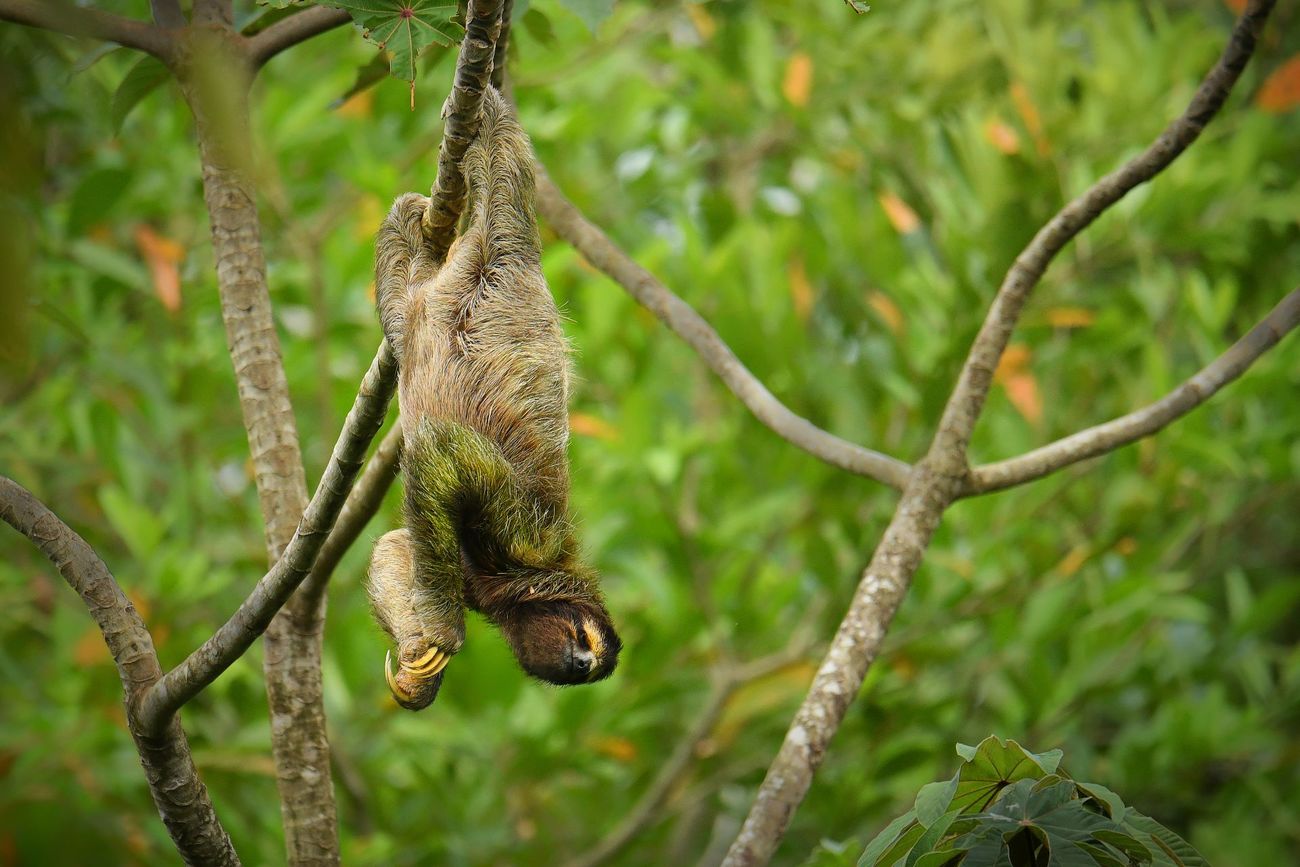
Exotic pet trade
- Many endemic species are prevalent in the exotic pet trade, because of their rarity and uniqueness. Despite often being protected in their home countries, animals are frequently illegally taken from the wild and then sold openly in foreign markets or laundered through the trade in captive-bred specimens. This is the case for Galapagos iguanas and Australian leaf-tailed geckos.
- IFAW is urging governments to support the proposal to transfer Galapagos iguanas from Appendix II to Appendix I. This will protect this endemic species from the threat of illegal pet trade and bring greater scrutiny to illegitimate claims of trade in captive-bred animals.
- Australian leaf-tailed geckos are also proposed for listing on CITES. These species continue to put up for sale on digital platforms and at pet trade shows despite no export permits ever having been issued for live trade for commercial purposes, showing traffickers will stop at nothing to get the rare creatures they want.
- IFAW will support Appendix II listings for Hoffmann's two-toed sloths and Linnaeus’s two-toed sloths, which are increasingly being exported as pets and for the tourist trade. The regulation of international trade is urgently needed to help avoid a further increase in the numbers of sloths traded and to help tackle illegal trade, preventing ultimate population decline.
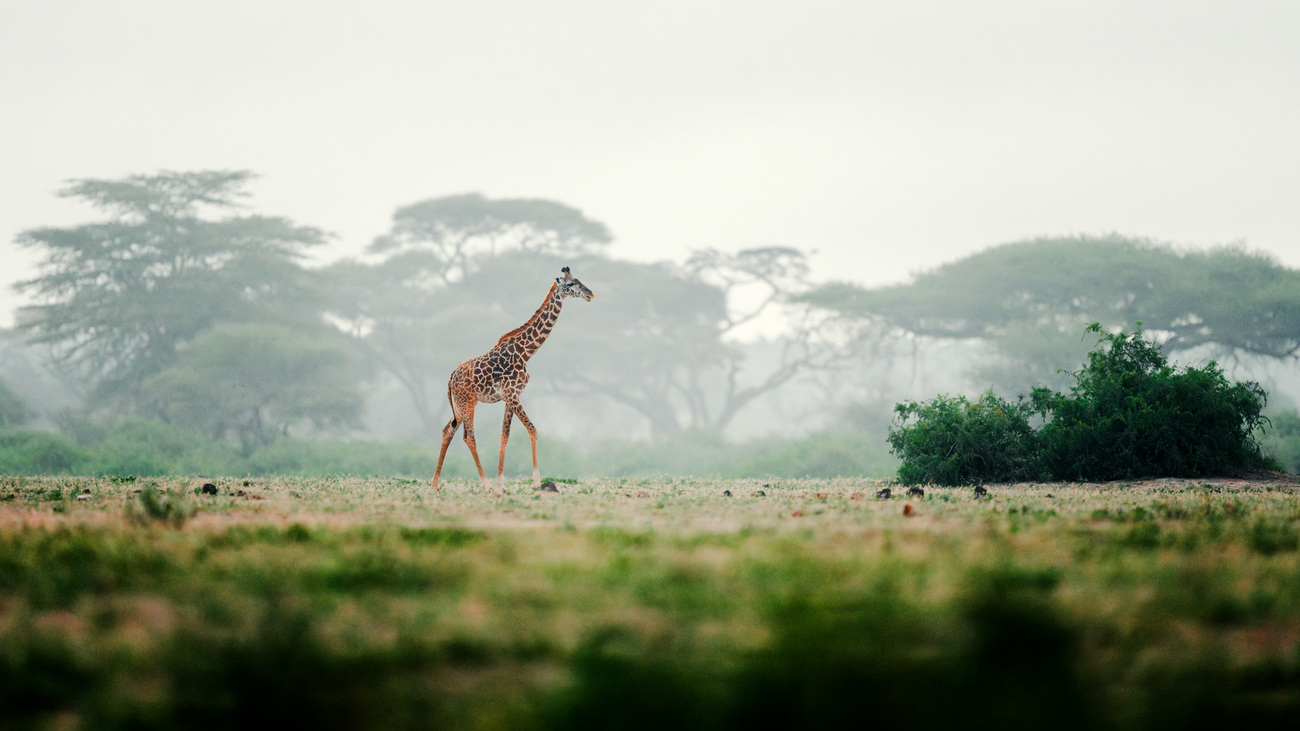
Protections for iconic African wildlife under threat
IFAW will once again urge governments to reject proposals to enable government-owned stockpiles of elephant ivory and rhino horn to be sold.
Any legal trade provides opportunities for criminals to launder poached elephant tusks and rhino horns into the market while imperilling rhino and elephant populations.
Despite being listed only a few years ago, some southern African countries are seeking to remove the Appendix II protection for their populations of giraffes at CoP20. The listing is important, as it had previously been impossible to determine the scale of international trade in giraffe products. CITES trade data since the listing shows extensive trade in giraffe parts, involving 37 exporters and more than 100 importers. This trade is largely driven by demand for bones, bone carvings, and skin pieces, meaning it would be impossible for enforcement officials to distinguish which giraffe populations products come from if a split-listing is agreed to at CoP20.
IFAW will be hosting and participating in a number of events. These include:
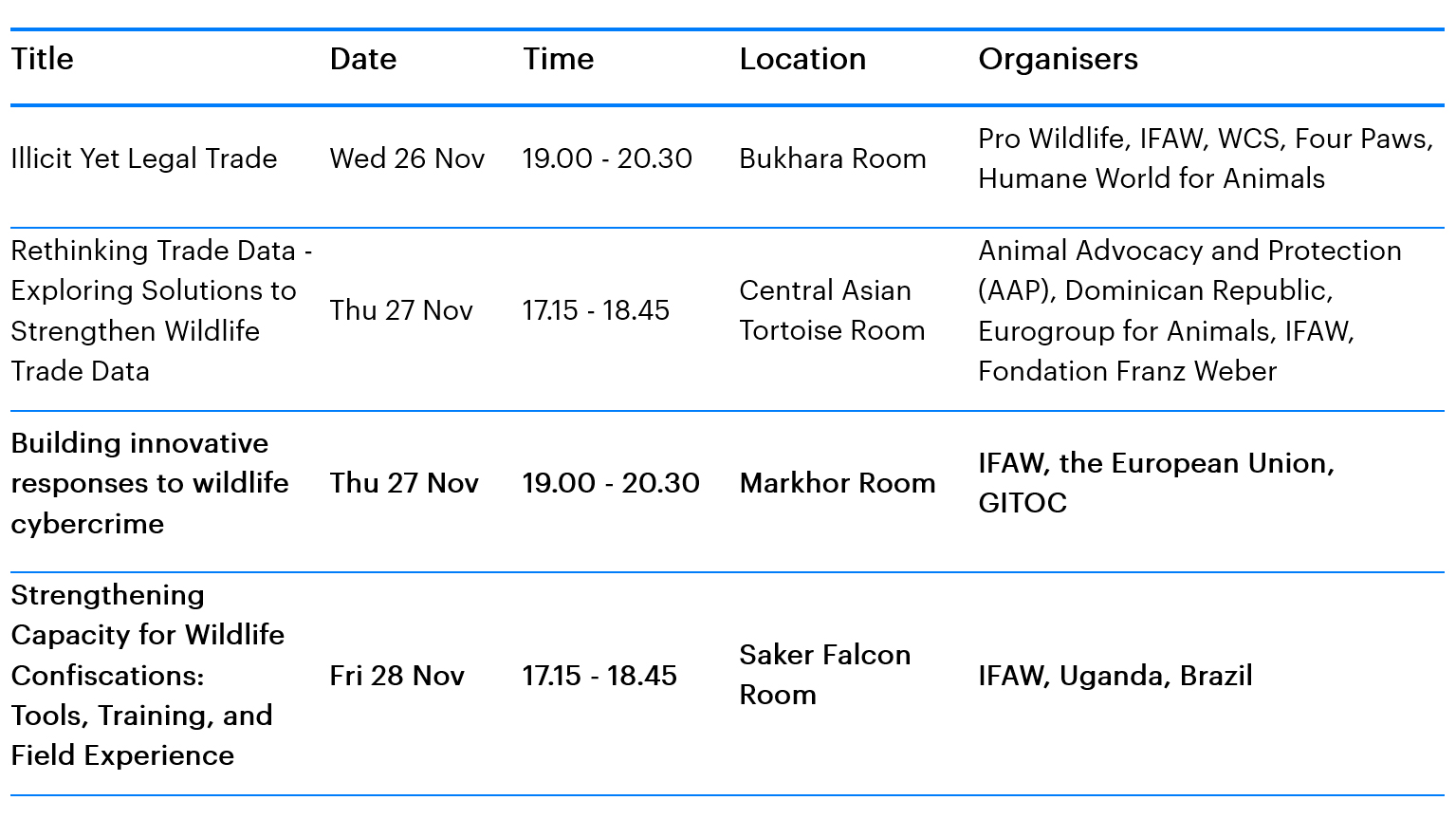
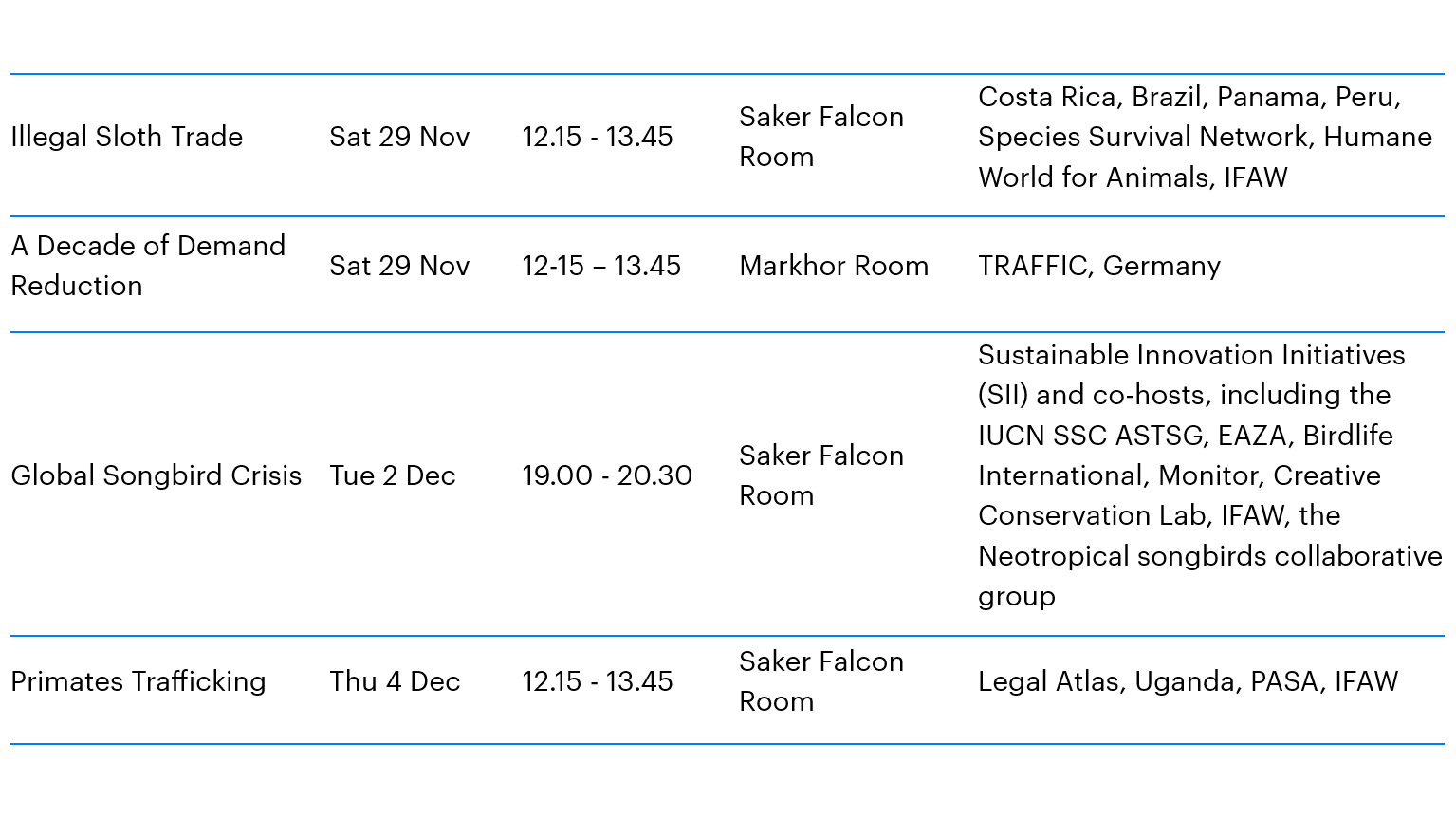
IFAW hosted side events:
Building innovative responses to wildlife cybercrime
As illegal wildlife trade increasingly shifts to digital platforms, experts from the European Commission, INTERPOL, GI-TOC, the UAE, and IFAW will explore how legislation, data, enforcement, and technology must evolve in response to wildlife crime linked to the internet.
The session will examine best-practice by Parties to modernize and adapt legislation and policy frameworks to address the dynamic nature of online markets. This includes updating national laws to explicitly criminalise digital illicit wildlife trade and wildlife trafficking and defining the responsibilities of online platforms.
The event will also showcase innovative models for sharing and analyzing data and intelligence, emphasising the importance of collaboration across borders and sectors. By improving access to actionable intelligence, authorities can better predict trends, allocate resources efficiently, and build replicable strategies for disruption.
Speakers from national and intergovernmental enforcement agencies will outline mechanisms to bridge the gap between intelligence and enforcement action, including interagency coordination and enforcement tools. Successful case studies will illustrate how targeted operations, driven by digital evidence, can dismantle criminal networks.
The session will also explore the role of the tech sector and emerging technologies like AI. From automated content detection to online monitoring tools, technology offers powerful solutions and partnerships with online platforms are critical to preventing, detecting, and removing illegal content.
Speakers:
Matt Collis, Senior Director Policy, IFAW
Matt has been with IFAW for over 20 years in a number of different roles, first joining IFAW’s London office to lead IFAW’s engagement with the UK government before moving to Sydney, Australia, where he managed IFAW’s policy and campaigns in the Oceania region, primarily focused on marine conservation. Matt returned to the UK in 2016 and led IFAW’s global policy work, engaging with UN institutions and international agreements.
In 2023, Matt took on his current role, in which he oversees IFAW’s international policy, marine conservation, and climate work, as well as national advocacy efforts by IFAW’s network of country offices. Matt holds a degree in politics from the University of Leeds, UK, and has first-hand experience working in the UK Parliament and US Congress and on conservation projects in Central America, Southeast Asia, and Oceania. He is based in the UK.
Julia Rusch – European Commission, Directorate General for the Environment, Global Environmental Cooperation & Multilateralism
Julia Rusch is an International Relations Officer at the European Commission’s Directorate-General for the Environment, where she works on international wildlife trade, including CITES implementation and efforts to combat wildlife trafficking. She serves as the EU focal point for whaling, the EU Seals Regime, and humane trapping standards, and covers policy matters related to aquatic species and enforcement within her team.
Since joining the European Commission in 2021, she has worked in the Office of the Director-General for the Environment, and later in climate diplomacy with Pacific and Asian countries, trade relations with the United States and Canada, and global environmental cooperation. She holds a Double Master’s Degree in International Affairs from Peking University and the London School of Economics and a Bachelor’s Degree in International Relations and Management.
Russell Grey - Head of Data, GI-TOC
Russell Gray is Head of the Global Monitoring System (GMS) under ECOSOLVE at the Global Initiative Against Transnational Organized Crime (GI-TOC). He leads a global network of analysts monitoring online illegal wildlife trade and developing intelligence-driven tools to support law enforcement and policy responses
Ilaria Di Silvestre, Director of Policy and Advocacy for Europe, IFAW
Ilaria is a biologist with a Master Degree on wildlife eco-ethology. Throughout her career, Ilaria has worked on wildlife conservation and policy for international organisations in Europe, Africa, and Middle East. She lived for over 15 years in different African countries managing transnational research projects and working with local institutions on wildlife management policies.
Since 2015 she has lived in Brussels and works on EU environmental policy. She is currently Director of Policy and Advocacy, Europe at IFAW. In her role, Ilaria is responsible for the formulation, coordination, and implementation of the IFAW advocacy strategy in Europe.
Tricia Tan, Criminal Intelligence Officer, INTERPOL
Tricia is currently a Criminal Intelligence Officer in INTERPOL Environmental Security Sub-Directorate, focusing on Wildlife Crime. She has over 10 years of experience in intelligence and investigations, starting from the Singapore Police Force and subsequently specialising in web and digital intelligence in one of the leading tech companies in the field, where she worked with various law enforcement agencies and financial institutions from all over the world to develop their web intelligence capabilities and investigation cases.
Ahmed Adnan Alhemeiri, Senior Biologist, UAE Ministry of Climate Change and Environment
Ahmed Adnan Alhemeiri is a Senior Biologist at the Ministry of Climate Change and Environment in the United Arab Emirates. He graduated from United Arab Emirates University with a Master of Science in Environmental Sciences and a Bachelor of Science in Ecology & Environmental Biology. His work focuses on strengthening national systems for regulating wildlife trade, enhancing enforcement measures, and integrating digital solutions to improve traceability and compliance under CITES. He led the development of the UAE National CITES Plan 2030, emphasising risk-based monitoring, cross-agency coordination, and proactive prevention of illegal wildlife trade. Ahmed also contributes to national training and awareness efforts, working closely with authorities and community stakeholders to build practical capacity and support sustainable wildlife management and biodiversity conservation.
Strengthening Capacity for Wildlife Confiscations: Tools, Training, and Field Experience
More information coming soon.
Experts available on site at CITES CoP20:
- IFAW senior director of policy, Matt Collis
- IFAW senior program manager, International policy, Barbara Slee
- IFAW Latin America regional representative, Joaquin de la Torre Ponce
- IFAW director of policy & advocacy, Europe, Ilaria Di Silvestre
- IFAW executive vice president of strategy, programs and field operations, Jason Bell
- IFAW senior program officer of wildlife rescue, Carole Mercier
- IFAW MENA region director, Akram Darwich
- IFAW Africa regional director, James Isiche